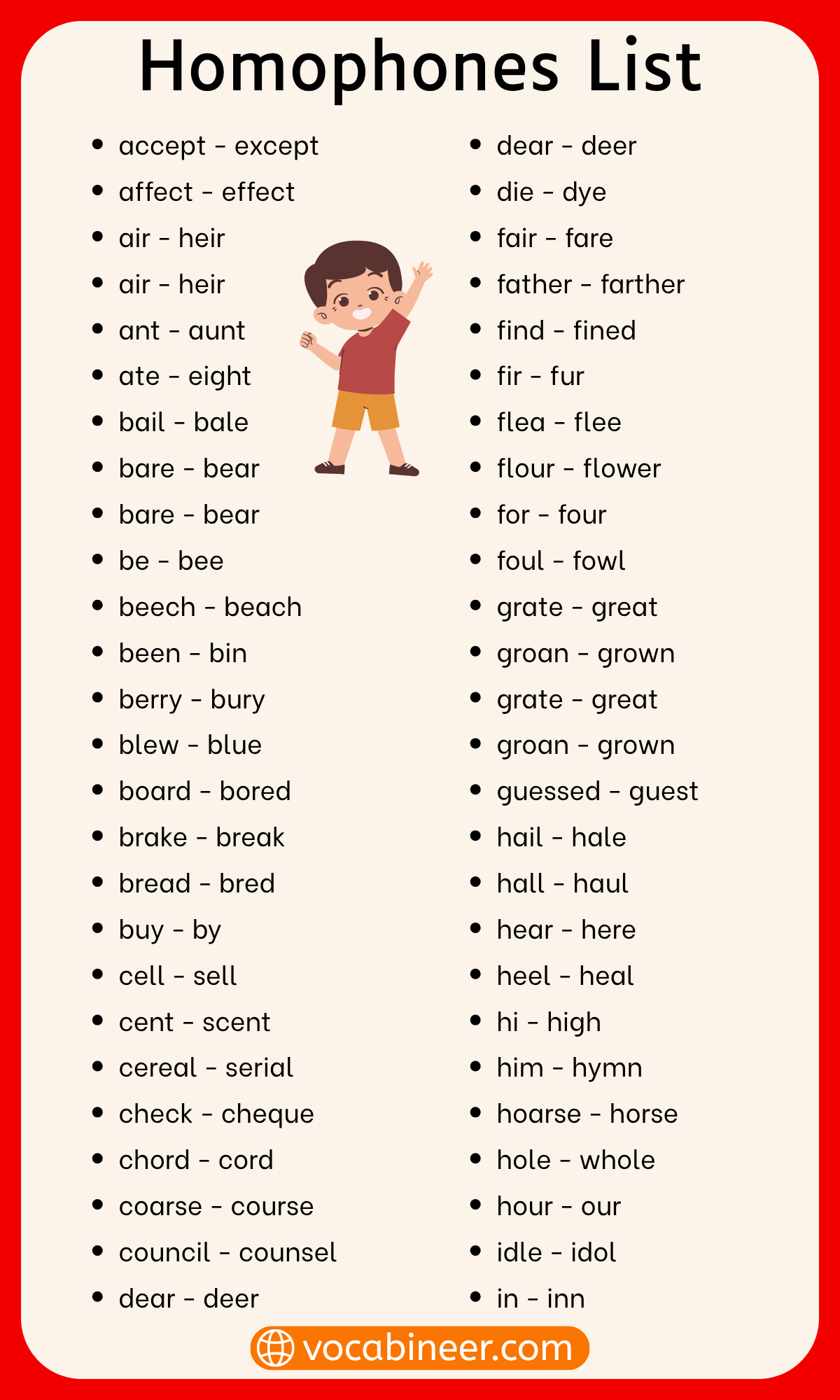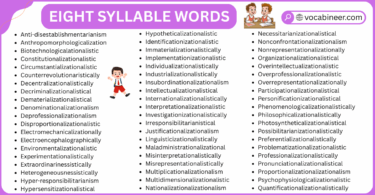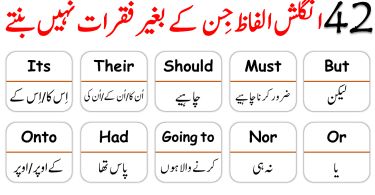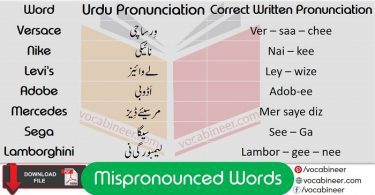Homophones are words that sound the same but mean different things and have different spellings. Words like hair and hare sound alike but are not used the same way. These can be tricky because they may confuse people when writing or speaking.
This post teaches 100 homophones with meanings using full sentences, so learners get better at using the correct words in English.

In This Page
What Are Homophones in English?
Homophones are words that sound the same when spoken but have different meanings and spellings. Even though they are pronounced alike, each word is used differently in writing. For example
- Two / Too / To – number, also, direction
- Your / You’re – belonging, you are
- Their / There / They’re – possession, place, they are
- Right / Write – correct, to write
- Hear / Here – listen, this place
How to Pronounce and Recognize Homophones
Homophones are words that sound the same but have different meanings and spellings.
Pronunciation Tip: All homophones sound alike, so say them out loud and use a dictionary to hear the correct sound.
Recognition Tip: To choose the right word, understand the sentence meaning. Spell-check won’t always help!
Common Homophones:
- To / Too / Two
Go to the store. / I want some too. / I have two dogs. - Your / You’re
Your bag is here. / You’re my best friend. - Their / There / They’re
Their car is red. / It’s over there. / They’re happy. - Right / Write
Turn right. / Write your name. - Hear / Here
I hear music. / Come here.
100 Examples of Homophones with Sentences in English
Here are 100 examples of homophones with simple sentences to help you understand their meanings and usage clearly. Each pair/trio is followed by short example sentences:
- To / Two / Too
- I’m going to the store.
- I have two pencils.
- I’m hungry too.
- There / Their / They’re
- The book is over there.
- It’s their house.
- They’re going to school.
- Your / You’re
- Is this your bag?
- You’re very kind.
- Its / It’s
- The cat licked its paw.
- It’s raining today.
- Than / Then
- She is taller than me.
- We’ll eat first, then play.
- By / Buy / Bye
- I live by the river.
- I want to buy a toy.
- Bye, see you later!
- Here / Hear
- Come here right now.
- I can’t hear you.
- Right / Write
- Turn right at the corner.
- Please write your name.
- No / Know
- No, I don’t want it.
- I know the answer.
- Sea / See
- We swam in the sea.
- I can see the moon.
- Flower / Flour
- I picked a red flower.
- Add flour to the mix.
- Mail / Male
- I got a letter in the mail.
- He is a male doctor.
- Peace / Piece
- We all want peace.
- Give me a piece of cake.
- Plain / Plane
- She wore a plain dress.
- The plane landed safely.
- Knight / Night
- The knight wore armor.
- I sleep at night.
- Eight / Ate
- I have eight crayons.
- She ate an apple.
- One / Won
- I have one sister.
- He won the race.
- Son / Sun
- Her son is five years old.
- The sun is bright.
- Weak / Week
- I feel weak today.
- It rained for a week.
- Blue / Blew
- The sky is blue.
- He blew out the candles.
- Hair / Hare
- Her hair is long.
- A hare runs fast.
- Meet / Meat
- Let’s meet after school.
- We had meat for dinner.
- Road / Rode
- The road is closed.
- She rode her bike.
- Heel / Heal
- My heel hurts.
- Time will heal the wound.
- Allowed / Aloud
- Pets are not allowed here.
- Read the poem aloud.
- Pair / Pear
- I bought a pair of shoes.
- She ate a pear.
- Hour / Our
- Wait an hour.
- Our dog is friendly.
- Hole / Whole
- There’s a hole in the sock.
- I ate the whole cake.
- Fair / Fare
- That’s not fair!
- The bus fare is $1.
- Here / Hear
- I live here.
- Did you hear that?
- Write / Right
- Write your answers.
- You got the right answer.
- Sale / Sail
- The shoes are on sale.
- The boat raised its sail.
- Stare / Stair
- Don’t stare at people.
- He fell down the stair.
- Tale / Tail
- That was a scary tale.
- The dog wagged its tail.
- Wait / Weight
- Wait for me.
- What’s your weight?
- Die / Dye
- Flowers die in winter.
- She wants to dye her hair.
- Mail / Male
- Check the mail box.
- A male lion has a mane.
- Plain / Plane
- The food was plain.
- The plane took off.
- Cent / Scent / Sent
- A penny is one cent.
- I love the flower’s scent.
- I sent you a message.
- Scene / Seen
- It was a sad scene.
- I’ve seen that movie.
- Peace / Piece
- Let’s live in peace.
- Take a piece of chocolate.
- Steel / Steal
- The gate is made of steel.
- Don’t steal things.
- Cell / Sell
- She called from her cell phone.
- They sell books here.
- So / Sew
- I’m so tired.
- She can sew well.
- Sight / Site
- That’s a beautiful sight.
- This is the site of the accident.
- Waste / Waist
- Don’t waste water.
- His waist is 32 inches.
- Bored / Board
- I feel bored.
- The teacher wrote on the board.
- Brake / Break
- Use the brake to stop.
- Don’t break the glass!
- Close / Clothes
- Please close the door.
- Fold your clothes neatly.
- Eye / I
- I hurt my eye.
- I am ready to go.
- Allowed / Aloud
- Pets are not allowed here.
- Please read the story aloud.
- Air / Heir
- The air is fresh today.
- He is the king’s heir.
- Ate / Eight
- I ate lunch early.
- There are eight apples.
- Band / Banned
- The music band played well.
- That song is banned on TV.
- Bare / Bear
- He walked on bare feet.
- A bear lives in the forest.
- Blue / Blew
- The sky is blue.
- The wind blew hard last night.
- Buy / By
- I will buy a new book.
- She walked by the river.
- Cell / Sell
- She talks on her cell phone.
- They sell fruits at the market.
- Cent / Scent
- A cent is one penny.
- The flower has a sweet scent.
- Dear / Deer
- Dear friends, welcome!
- A deer crossed the road.
- Die / Dye
- Flowers die in winter.
- She wants to dye her hair red.
- Flour / Flower
- Add flour to make the cake.
- She picked a beautiful flower.
- Flee / Flea
- The cat tried to flee.
- The dog has a flea problem.
- Hair / Hare
- She has long hair.
- A hare is like a rabbit.
- Heal / Heel
- Time will heal your wounds.
- My heel hurts after walking.
- Hear / Here
- Can you hear the music?
- Come here quickly!
- Knight / Night
- The knight wore shiny armor.
- It’s dark at night.
- Know / No
- I know the answer.
- There is no milk left.
- Lead / Led
- They lead the team.
- He led the group yesterday.
- Meat / Meet
- We ate meat for dinner.
- Let’s meet at the park.
- Pair / Pear
- I bought a pair of shoes.
- She ate a juicy pear.
- Peace / Piece
- Everyone wants peace.
- Give me a piece of cake.
- Plain / Plane
- The dress is plain and simple.
- The plane landed safely.
- Pray / Prey
- They pray every morning.
- The lion hunts its prey.
- Principal / Principle
- The principal is very kind.
- Honesty is a strong principle.
- Read / Reed
- I like to read books.
- The reed grows near the lake.
- Right / Write
- Turn right at the corner.
- Please write your name.
- Road / Rode
- The road is slippery.
- She rode her bike fast.
- Role / Roll
- He played the main role.
- I want a roll of bread.
- Sail / Sale
- The boat raised its sail.
- The store has a big sale.
- See / Sea
- I can see the stars.
- We swam in the sea.
- Sew / So
- She can sew clothes well.
- I am tired, so I will rest.
- Son / Sun
- Her son is five years old.
- The sun is shining bright.
- Stair / Stare
- Be careful on the stair.
- Don’t stare at people.
- Stake / Steak
- They drove a stake into the ground.
- I had a delicious steak.
- Stationary / Stationery
- The car is stationary.
- I bought new stationery.
- Steel / Steal
- The bridge is made of steel.
- Don’t steal anything.
- Tale / Tail
- She told a scary tale.
- The dog wagged its tail.
- Their / There / They’re
- It’s their car.
- The book is over there.
- They’re my friends.
- To / Too / Two
- I am going to school.
- I want ice cream too.
- I have two cats.
- Waist / Waste
- His waist is small.
- Don’t waste food.
- Wait / Weight
- Wait for me.
- What is your weight?
- Wear / Where
- What will you wear today?
- Where is my book?
- Week / Weak
- I was sick for a week.
- I feel weak after running.
- Write / Right
- Write your name here.
- Take a right turn.
- Your / You’re
- Is this your pencil?
- You’re very nice.
- Yolk / Yoke
- Break the egg and take out the yolk.
- The ox wore a yoke.
- Ball / Bawl
- He threw the ball.
- The baby began to bawl loudly.
- Brake / Break
- Use the brake to stop.
- Don’t break the vase.
- Beach / Beech
- We walked along the beach.
- The beech tree is tall.

Most Frequently Used Homophones in Daily English
Here are the Most Frequently Used Homophones in Daily English
- To / Too / Two
- Your / You’re
- Their / There / They’re
- Right / Write
- Hear / Here
- No / Know
- Its / It’s
- Then / Than
- Buy / By
- New / Knew
- Weather / Whether
- Peace / Piece
- See / Sea
- One / Won
- Which / Witch
- Accept / Except
- Brake / Break
- Blue / Blew
- Allowed / Aloud
- Weak / Week
- Hole / Whole
- Plain / Plane
- Male / Mail
- Sight / Site
- Cell / Sell
- Steal / Steel
- Flour / Flower
- Son / Sun
- Meet / Meat
- Knight / Night
- Tale / Tail
- Road / Rode
- Board / Bored
- Beat / Beet
- Capital / Capitol
- Principal / Principle
- Pair / Pear
- Sole / Soul
- Hair / Hare
- Pause / Paws
- Die / Dye
- Reign / Rain / Rein
- Rays / Raise
- Ring / Wring
- Tail / Tale
- Threw / Through
- Right / Rite
- Ware / Wear
- Fair / Fare
Homophones in Common English Idioms and Phrases
Here are some common English idioms and phrases that include homophones, making them fun and sometimes tricky to understand. These idioms rely on wordplay using words that sound the same but have different meanings:
- Break the ice – (not brake): to start a conversation
- Make a scene at the sea – playful phrase using scene/seen and sea/see
- No pain, no gain – sounds like know pain, know gain
- Time to bare your soul – (bare sounds like bear)
- Toe the line – often confused with tow the line
- The knight in shining armor – knight sounds like night
- Whet your appetite – often confused with wet your appetite
- A sight for sore eyes – sight sounds like site
- Right on the money – right sounds like rite
- Sow the seeds of doubt – sow sounds like sew
Difference Between Homophones, Homonyms, and Homographs
Here’s a clear and simple explanation of the difference between homophones, homonyms, and homographs, ideal for middle school learners:
| Term | Definition | Same Sound | Same Spelling | Examples |
|---|---|---|---|---|
| Homophones | Words that sound the same but have different meanings and spellings | ✅ Yes | ❌ No | Flour / FlowerTwo / Too |
| Homonyms | Words that sound and are spelled the same, but have different meanings | ✅ Yes | ✅ Yes | Bat (animal / sports tool)Bank (money / river) |
| Homographs | Words that are spelled the same, may or may not sound the same, but have different meanings | ❌/✅ Sometimes | ✅ Yes | Lead (metal / guide)Tear (rip / eye drop) |
Common Mistakes with Homophones and How to Avoid Them
Many students get confused by homophones—words that sound the same but mean different things and are spelled differently. Here are some common examples:
- Your means something belongs to you.
You’re means you are.
✅ Example: You’re my best friend. - Their shows something belongs to them.
There is a place.
They’re means they are.
✅ Example: They’re going to their house over there. - To is used for direction or action.
Too means also or very.
Two is the number 2.
✅ Example: I want two apples too. - Its means something belongs to it.
It’s means it is.
✅ Example: It’s sunny today. - Than is used for comparing.
Then means time or order.
✅ Example: She is taller than me. First we eat, then we play.
FAQs About Homophones
Homophones are words that sound the same but have different meanings and spellings. Example: to, two, and too.
Because they sound the same, people often mix them up in writing, even though their meanings and spellings are different.
Think about the meaning of your sentence. Choose the word that fits the meaning, not just the sound.
Your shows ownership. You’re is short for you are.
✅ Example: You’re my friend.
There = place
Their = something belongs to them
They’re = they are
Practice with examples, use flashcards, and read your writing aloud to catch mistakes.
Read More




